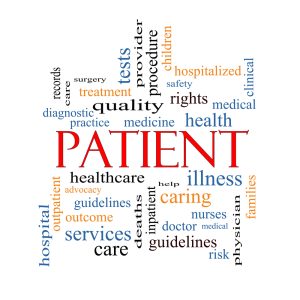By – James M. Katz, BA
Health care ethics forms the backbone of modern medical practice, shaping the way healthcare professionals interact with patients and make crucial decisions. At the heart of these ethical principles lies the concept of patient autonomy, which has an impact on every aspect of healthcare delivery. This fundamental right empowers individuals to have a say in their own medical care, fostering a patient-centered approach that enhances healthcare quality and outcomes.
The principle of autonomy in healthcare ethics encompasses various aspects, including informed consent, patient rights, and the delicate balance between individual choice and medical expertise. Healthcare organizations and professionals face ongoing challenges to uphold these ethical standards while navigating complex legal and ethical issues in healthcare. To address these concerns, healthcare providers must understand the seven principles of health care ethics and their practical application in diverse clinical scenarios. This article explores the critical role of autonomy in healthcare, examining its implications for patient care, ethical decision-making, and the overall landscape of health care law and ethics.
The Role of Autonomy in Patient-Centered Care
Defining patient-centered care
Patient-centered care is a fundamental approach in modern healthcare that places the patient at the heart of all medical decisions and interactions. This concept emphasizes the importance of considering patients’ values, preferences, and needs throughout their healthcare journey. The Picker Institute, a pioneer in advancing patient-centered care, established eight key principles in 1993, which include “Respect for patients’ values, preferences and expressed needs” and “Involvement of family and friends”. These principles highlight the shift from an authoritarian, clinician-dominated model to one that acknowledges and incorporates patient preferences and initiatives.
Autonomy as a core principle
Autonomy stands as a cornerstone of healthcare ethics, shaping the way medical professionals interact with patients and make critical decisions. This principle emphasizes the right of individuals to make informed choices about their own health and well-being. In healthcare settings, patient autonomy centers around an individual’s responsibility to make healthcare decisions independently. It recognizes that patients with decision-making capacity have the right to make choices regarding their care, even when these decisions contradict their clinicians’ recommendations.
The concept of autonomy in healthcare reflects the broader societal value placed on individuals’ right to shape their own lives and make decisions about their well-being. It serves to protect patients from potential coercion, manipulation, or undue influence, particularly from medical professionals. By respecting patient autonomy, healthcare providers acknowledge patients’ right to self-governance and their ability to make independent decisions based on their own assessment of the reasons for pursuing different outcomes.
Benefits of respecting autonomy
Respecting patient autonomy has several benefits for both patients and healthcare providers. Firstly, it promotes informed decision-making by ensuring that patients have access to accurate and comprehensive information about their health conditions, treatment options, and potential risks and benefits. This empowers patients to actively participate in their own care and make decisions based on their individual circumstances.
Secondly, respecting autonomy helps to build trust between patients and healthcare providers. When clinicians support patients’ self-determination and give them a sense of autonomy, it enhances patients’ trust in their healthcare providers. This trust, in turn, fosters satisfaction with physicians, which leads to improved doctor-patient relationships, better patient compliance with treatment, and ultimately, better patient outcomes.
Furthermore, respecting patient autonomy aligns with the ethical principles of beneficence (acting in the patient’s best interest) and non-maleficence (doing no harm). By involving patients in the decision-making process, healthcare providers can help them make choices that align with their values and preferences, ensuring that healthcare decisions are made collaboratively with the patient’s best interests at the forefront.
However, it is important to note that patient autonomy can sometimes give rise to complex ethical dilemmas, particularly when it conflicts with other ethical principles or societal considerations. Healthcare professionals often face challenging decisions in these situations, such as balancing the principles of patient autonomy and beneficence or navigating end-of-life decisions. In such cases, a shared decision-making approach becomes more relevant and feasible, where patients and healthcare providers work together to make informed choices.
Informed Consent: Cornerstone of Autonomy
Informed consent stands as a fundamental principle in health care ethics, serving as a cornerstone of patient autonomy and a safeguard for patient rights in healthcare. This process involves clear communication between healthcare providers and patients, resulting in the patient’s authorization or agreement to undergo specific medical interventions.
Legal requirements
The legal foundation for informed consent in the United States traces back to the early 20th century. In the landmark case of Schloendorff v. New York Society Hospital, Justice Benjamin Cardozo established that every adult of sound mind has the right to determine what happens to their body. This ruling laid the groundwork for the modern understanding of patient autonomy in healthcare.
Today, informed consent is both an ethical and legal obligation for medical practitioners. The Joint Commission, a healthcare accreditation organization, requires documentation of all elements of informed consent in a patient’s medical record. These elements include the nature of the procedure, its risks and benefits, reasonable alternatives, and an assessment of the patient’s understanding.
Ethical considerations
Informed consent is deeply rooted in the principle of respect for persons, one of the three ethical principles governing human subjects research outlined in the Belmont Report. This principle requires that individuals be treated as autonomous agents and that those with diminished autonomy receive appropriate protection.
The process of obtaining informed consent involves three key features: disclosing necessary information, facilitating understanding, and promoting voluntary decision-making. These elements align with the broader ethical principles of beneficence (doing good) and non-maleficence (avoiding harm) in healthcare.
However, challenges can arise when patient autonomy conflicts with other ethical principles or societal considerations. Healthcare professionals often face complex decisions in balancing respect for patient autonomy with other ethical obligations, particularly in end-of-life scenarios or when dealing with vulnerable populations.
Practical implementation
Implementing informed consent effectively requires healthcare providers to communicate complex medical information in terms that patients can understand. The process should be viewed as an ongoing exchange of information rather than a one-time event.
Key components of the informed consent process include:
1. Describing the proposed intervention and its purpose
2. Emphasizing the patient’s role in decision-making
3. Discussing alternatives to the proposed intervention
4. Explaining potential risks and benefits
5. Eliciting the patient’s preference, usually through signature
To enhance patient understanding, healthcare providers are encouraged to use visual and digital communication tools. These aids can help address barriers such as high reading levels in consent forms or language differences. It’s crucial to note that obtaining a signature alone does not constitute valid informed consent. The emphasis is shifting towards effective communication rather than simply securing a signature. Healthcare providers must ensure that patients truly understand what they are consenting to and have the opportunity to ask questions.
In conclusion, informed consent serves as a vital component of patient-centered care and patient safety. By respecting patient autonomy and facilitating informed decision-making, healthcare providers can uphold ethical standards and legal requirements while fostering trust in the patient-provider relationship.
Challenges to Autonomy in Modern Health Care Ethics
While patient autonomy is a fundamental principle in health care ethics, its implementation faces several challenges in modern healthcare settings. These challenges can impact the quality of care and the ability of patients to make informed decisions about their health.
Time constraints
One of the most significant barriers to patient autonomy is the limited time available for clinical decision-making. Studies have shown that both patients and clinicians view time constraints as a frequent and substantial obstacle to shared decision-making (SDM). The prevailing sentiment among healthcare professionals and patients is that there is an inherent tension between time and SDM.
Clinicians face substantial time pressure to efficiently accomplish clinic visits and other patient-related duties, making their time a valuable and scarce resource. They routinely deem the quantity of time they have with patients inadequate, and this perceived time shortage is compounded by mounting burdens of documentation and other administrative duties. In fact, physicians’ satisfaction with the perceived amount of time they have with each patient has decreased over the past few decades.
Patients, too, are aware of clinicians’ busy schedules, which can affect the extent to which they actively participate in decision-making. If patients view SDM as requiring more time, they might consider it less important than other parts of a clinic visit, and the importance they give to SDM can diminish further when faced with a clinician who seems pressed for time.
Complex medical information
Another challenge to patient autonomy is the complexity of medical information that patients must process to make informed decisions. Healthcare professionals face the difficult task of striking the right balance between providing sufficient information for informed consent and avoiding overwhelming patients with complex medical details.
In emergency neurosurgery, for example, patients often have impaired consciousness and are unable to directly express their values and wishes regarding their treatment. The limited time available for clinical decision-making has great ethical implications, as the informed consent procedure may become compromised. This situation challenges the respect for autonomy of the patient, as the emergent nature of the procedure can compromise the patient’s ability to make an autonomous decision.
Conflicts of interest
Conflicts of interest can also pose challenges to patient autonomy in modern healthcare. These conflicts can arise from various sources, including cultural differences, family involvement, and the healthcare system itself.
Language and cultural barriers can impede communication between patients and clinicians, exacerbating health inequity. Additional complications can arise when family members, intending to protect their loved ones, ask clinicians to lie or not disclose to patients their diagnoses, prognoses, or intervention options. While clinicians must express respect for patients’ and families’ cultural, religious, and social norms regarding health care decision-making, they might also be ethically troubled by some decisions’ effects on patients’ health outcomes.
Moreover, patient autonomy can intersect with broader societal considerations, such as limited healthcare resources. Ethical dilemmas may arise when patients request treatments that are expensive or scarce, potentially impacting the availability of resources for others.
In conclusion, while patient autonomy remains a cornerstone of health care ethics, modern healthcare presents numerous challenges to its implementation. Time constraints, complex medical information, and conflicts of interest all contribute to the difficulty of ensuring true patient autonomy. Healthcare professionals must navigate these challenges carefully, balancing the principles of patient autonomy with other ethical considerations to provide the best possible care for their patients.
Autonomy in Special Circumstances
Emergency situations
In emergency situations, respecting patient autonomy can present unique challenges for healthcare providers. The principle of autonomy requires that patients have the right to make informed decisions about their medical care. However, in emergencies, time constraints and the patient’s condition may limit their ability to exercise this right fully.
When faced with a medical emergency, physicians must balance the ethical obligation to respect patient autonomy with the need to act quickly to preserve life and prevent harm. In some cases, the urgency of the situation may necessitate making decisions without obtaining explicit consent from the patient or their surrogate decision-maker.
Healthcare providers must base their decisions on a combination of theoretical principles and practical considerations, taking into account the specific circumstances of each case. While no single physician-patient model is ideal for solving communication problems in emergency situations, efforts can be made to uncover treatment refusal and respect patient autonomy to the extent possible.
Public health crises
During public health crises, such as the COVID-19 pandemic, the balance between individual autonomy and collective well-being becomes particularly complex. Government administrators may implement measures to restrict the spread of infectious diseases, which can limit individual freedoms. These measures may include mandatory vaccinations, testing requirements, and restrictions on public gatherings or access to certain spaces. https://www.ncbi.nlm.nih.gov/books/NBK538279/
The ethical justification for such measures often relies on the principle of harm prevention, which can sometimes override individual autonomy in the interest of protecting public health. However, it is crucial to ensure that any restrictions on autonomy are proportionate, evidence-based, and implemented with transparency and clear communication.
Healthcare providers and public health officials must navigate the delicate balance between respecting individual rights and safeguarding the health of the broader community. This may involve engaging in public education efforts, providing clear and accurate information about risks and benefits, and seeking to build trust with communities to encourage voluntary compliance with public health measures.
Clinical trials
Clinical trials play a crucial role in advancing medical knowledge and developing new treatments. However, they also present unique challenges in terms of respecting patient autonomy. The informed consent process is a cornerstone of ethical clinical research, ensuring that participants understand their role as subjects of research rather than patients receiving standard care.
To protect the autonomy of clinical trial participants, several safeguards are in place:
1. Informed consent: Potential participants must receive comprehensive information about the trial, including its purpose, procedures, risks, and potential benefits. This information must be presented in language understandable to the participant, and they must have the opportunity to ask questions and discuss the trial with family and friends.
2. Voluntary participation: It must be emphasized that participation in clinical trials is entirely voluntary, and participants have the right to refuse or withdraw at any time without losing benefits to which they are entitled.
3. Institutional Review Boards (IRBs): These independent committees review and monitor clinical trials to ensure that risks to participants are minimized and are reasonable in relation to anticipated benefits.
4. Data Safety Monitoring Boards (DSMBs): These impartial groups monitor the progress of clinical trials, checking for adverse events and analyzing the safety and effectiveness of experimental treatments.
In conclusion, while respecting patient autonomy is a fundamental principle of healthcare ethics, special circumstances such as emergencies, public health crises, and clinical trials can present unique challenges. Healthcare providers and researchers must navigate these situations carefully, balancing the need to respect individual autonomy with other ethical considerations such as beneficence, non-maleficence, and justice. By maintaining a commitment to clear communication, transparency, and ethical decision-making, healthcare professionals can strive to uphold patient autonomy even in complex and challenging circumstances.
Enhancing Patient Autonomy: Strategies for Healthcare Providers
Healthcare providers play a crucial role in enhancing patient autonomy, which is a fundamental principle of health care ethics. By implementing effective strategies, providers can empower patients to make informed decisions about their care and actively participate in their healthcare journey.
Improving health literacy
One of the key strategies to enhance patient autonomy is to improve health literacy. Health literacy refers to an individual’s knowledge and understanding of their health conditions, medical services, and decisions. By increasing patients’ health literacy, healthcare providers can give them greater authority and autonomy in their care.
To improve health literacy, healthcare providers can:
1. Provide detailed, informative sheets about medical conditions and treatments.
2. Encourage patients to conduct research before making decisions.
3. Utilize digital communication tools, which have shown significant potential in improving health literacy and leading to better health outcomes.
Mobile health apps, for instance, offer convenient access to health information, self-monitoring tools, and personalized interventions, empowering individuals to actively participate in their healthcare journey.
Empowering patients
Patient empowerment refers to patients becoming co-managers in their care processes. When patients are empowered to become more engaged in their care, their experience greatly improves.
To empower patients, healthcare providers can:
1. Foster a provider-patient relationship based on mutual respect and trust.
2. Provide educational resources and information about treatment options and costs.
3. Encourage patients to participate in the decision-making process.
Empowered patients take part in their healthcare by educating themselves, knowing what questions to ask, and participating in decision-making. This approach has been associated with cost savings, improved patient experience, better health outcomes, and increased patient-provider satisfaction.
Cultural competence
Cultural competence is essential in enhancing patient autonomy, especially in diverse healthcare settings. Healthcare providers must be aware of and respect cultural differences in decision-making processes and information sharing.
For example, in Chinese and other collectivist cultures, families often prefer to protect their loved ones from difficult information. This can present challenges when balancing patient autonomy with respect for cultural practices.
To address this, healthcare providers can:
1. Ask patients about their preferences for information sharing and medical decision-making.
2. Respect patients’ cultural, religious, and social norms regarding healthcare decision-making.
3. Adapt communication strategies to accommodate different cultural perspectives on autonomy.
By implementing these strategies, healthcare providers can enhance patient autonomy while respecting cultural diversity. This approach aligns with the principles of health care ethics and contributes to improved healthcare quality and outcomes.
In conclusion, enhancing patient autonomy requires a multifaceted approach that addresses health literacy, patient empowerment, and cultural competence. By implementing these strategies, healthcare providers can create a more patient-centered care environment that respects individual rights and promotes better health outcomes.
Conclusion
Patient autonomy has a profound impact on modern healthcare, shaping the way medical professionals interact with patients and make crucial decisions. This principle empowers individuals to have a say in their own medical care, fostering a patient-centered approach that enhances healthcare quality and outcomes. However, implementing patient autonomy in practice comes with its own set of challenges, including time constraints, complex medical information, and potential conflicts of interest.
To address these challenges and promote patient autonomy, healthcare providers can focus on improving health literacy, empowering patients, and developing cultural competence. By doing so, they can create an environment that respects individual rights and promotes better health outcomes. This approach aligns with the broader ethical principles in healthcare and contributes to a more equitable and effective healthcare system.
Health Care Ethics is a large part of the medical industry. As healthcare becomes more and more complex, ethical decision making follows as well. There is a growing need for certified Health Care Ethic Consultants and Specialists. AIHCP offers an excellent certification program in Healthcare Ethics that is open to Healthcare Professionals. It involves meeting a prerequisite requirement and taking 5 online healthcare ethics courses. Once completed, students would become a Health Care Ethics Consultant. For full details on the program, please go here.
FAQs
1. What does the ethical principle of autonomy mean in healthcare? Autonomy in healthcare refers to the right of capable adults to make informed decisions about their own medical care. This principle mandates that healthcare professionals must obtain the patient’s consent or informed agreement before conducting any medical investigation or treatment.
2. What are the primary ethical principles in healthcare? The four main ethical principles in healthcare include beneficence, nonmaleficence, autonomy, and justice. These principles guide various practices such as informed consent, truth-telling, and maintaining confidentiality, all of which derive from the principle of autonomy.
3. Is autonomy recognized as a fundamental principle in healthcare ethics globally? Yes, autonomy is acknowledged as one of the key principles in healthcare ethics worldwide. It highlights the patient’s right to make informed decisions about their healthcare. For instance, healthcare providers demonstrate respect for autonomy by ensuring that a patient is fully informed and consents to any medical procedures or treatments.
Research Articles:
Revisiting Beneficence: What Is a ‘Benefit’, and by What Criteria? Avant, L. C., & Swetz, K. M. (2020). The American Journal of Bioethics, 20(3), 75–77.
Access link here
Clarification of ethical principle of the beneficence in nursing care: an integrative review. Cheraghi, R., Valizadeh, L., Zamanzadeh, V. et al. BMC Nurs 22, 89 (2023).
Access link here
Reconciling Lists of Principles in Bioethics. Robert M Veatch, The Journal of Medicine and Philosophy: A Forum for Bioethics and Philosophy of Medicine, Volume 45, Issue 4-5, August 2020, Pages 540–559.
Access link here
Autonomy vs beneficence: shared decision-making in allergy. John O. Warner, Et Al. Current Allergy & Clinical Immunology Vol. 35, No. 3| Sep 2022.
Access link here






 Written By Miranda Booher
Written By Miranda Booher